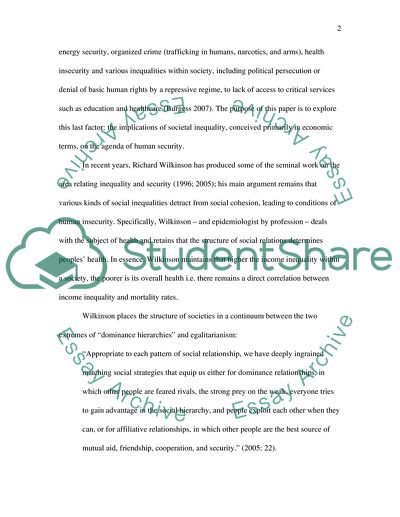Cite this document
(What is the Impact of Inequality on Human Security Research Paper, n.d.)
What is the Impact of Inequality on Human Security Research Paper. Retrieved from https://studentshare.org/military/1723046-what-is-the-impact-of-inequality-on-human-security-discuss-with-reference-to-recent-work-by-wilkinson
What is the Impact of Inequality on Human Security Research Paper. Retrieved from https://studentshare.org/military/1723046-what-is-the-impact-of-inequality-on-human-security-discuss-with-reference-to-recent-work-by-wilkinson
(What Is the Impact of Inequality on Human Security Research Paper)
What Is the Impact of Inequality on Human Security Research Paper. https://studentshare.org/military/1723046-what-is-the-impact-of-inequality-on-human-security-discuss-with-reference-to-recent-work-by-wilkinson.
What Is the Impact of Inequality on Human Security Research Paper. https://studentshare.org/military/1723046-what-is-the-impact-of-inequality-on-human-security-discuss-with-reference-to-recent-work-by-wilkinson.
“What Is the Impact of Inequality on Human Security Research Paper”, n.d. https://studentshare.org/military/1723046-what-is-the-impact-of-inequality-on-human-security-discuss-with-reference-to-recent-work-by-wilkinson.


